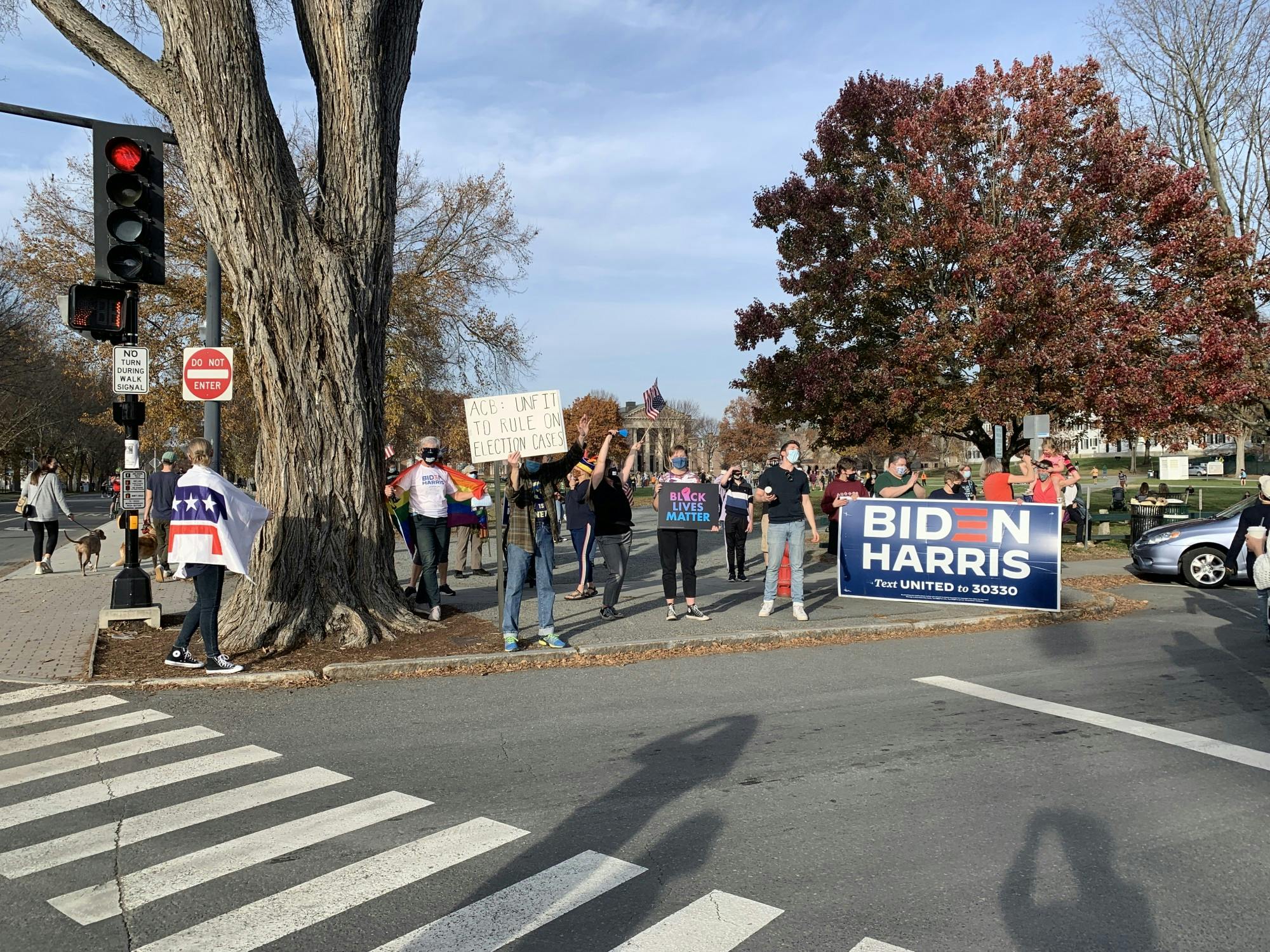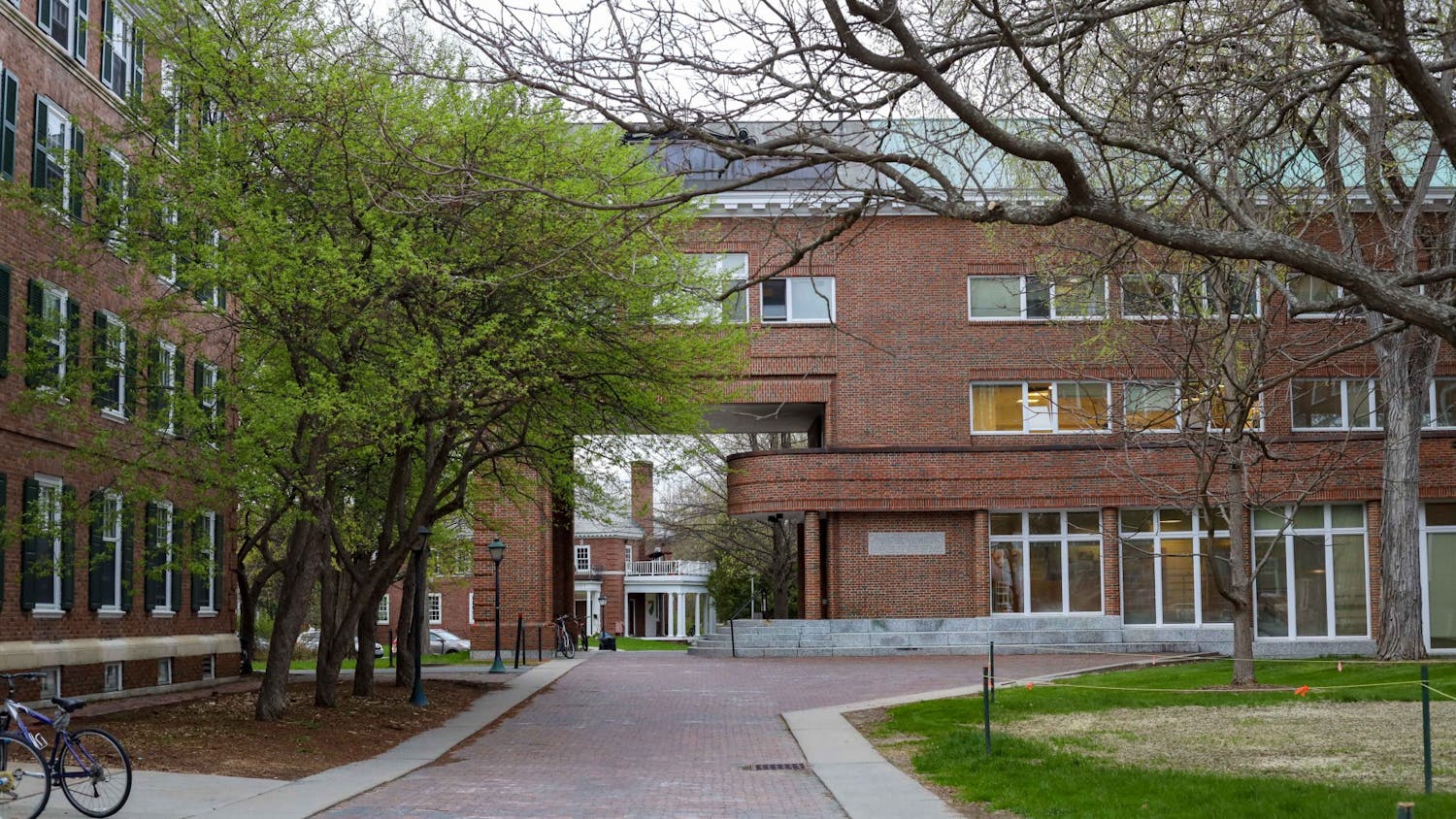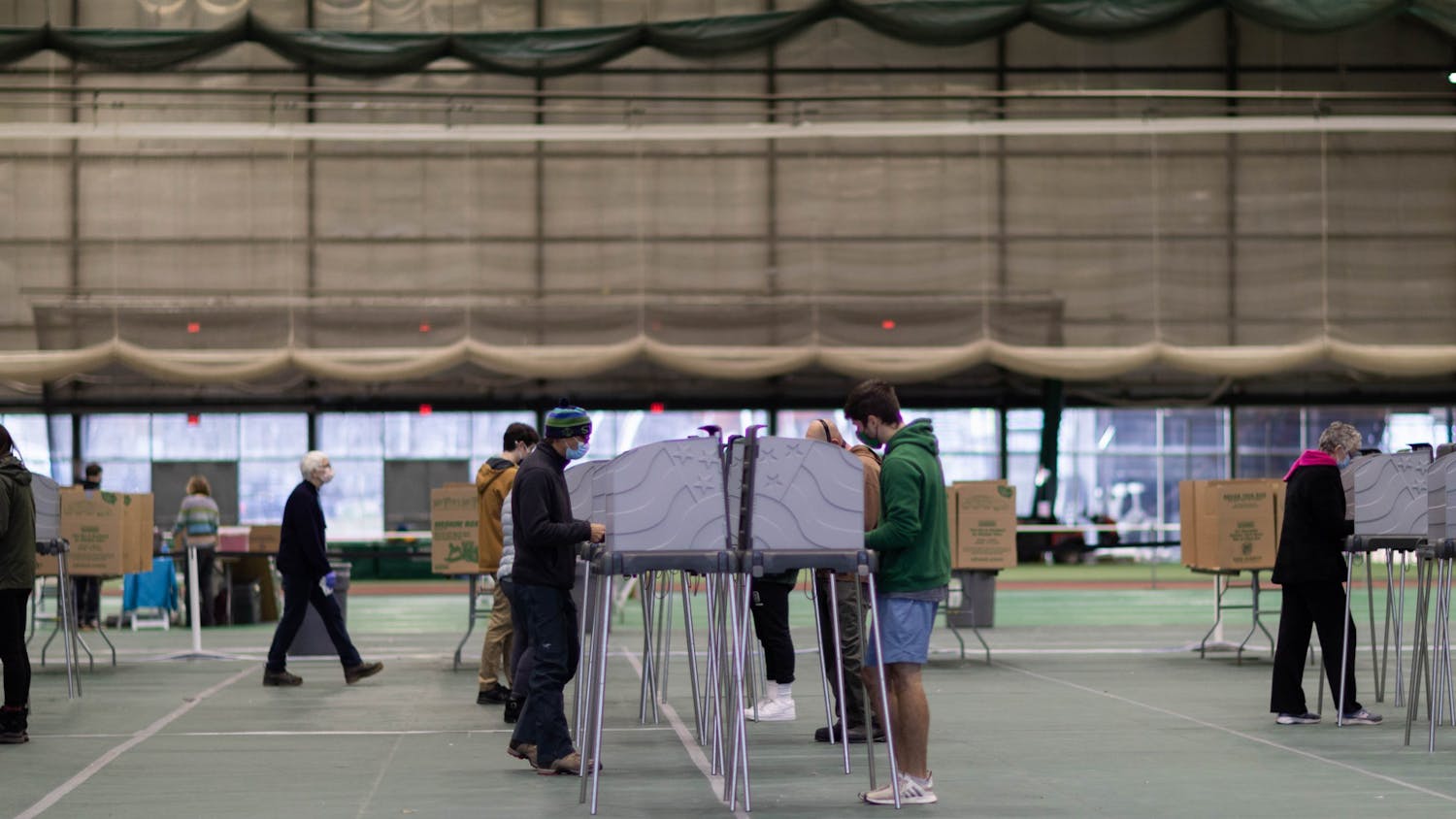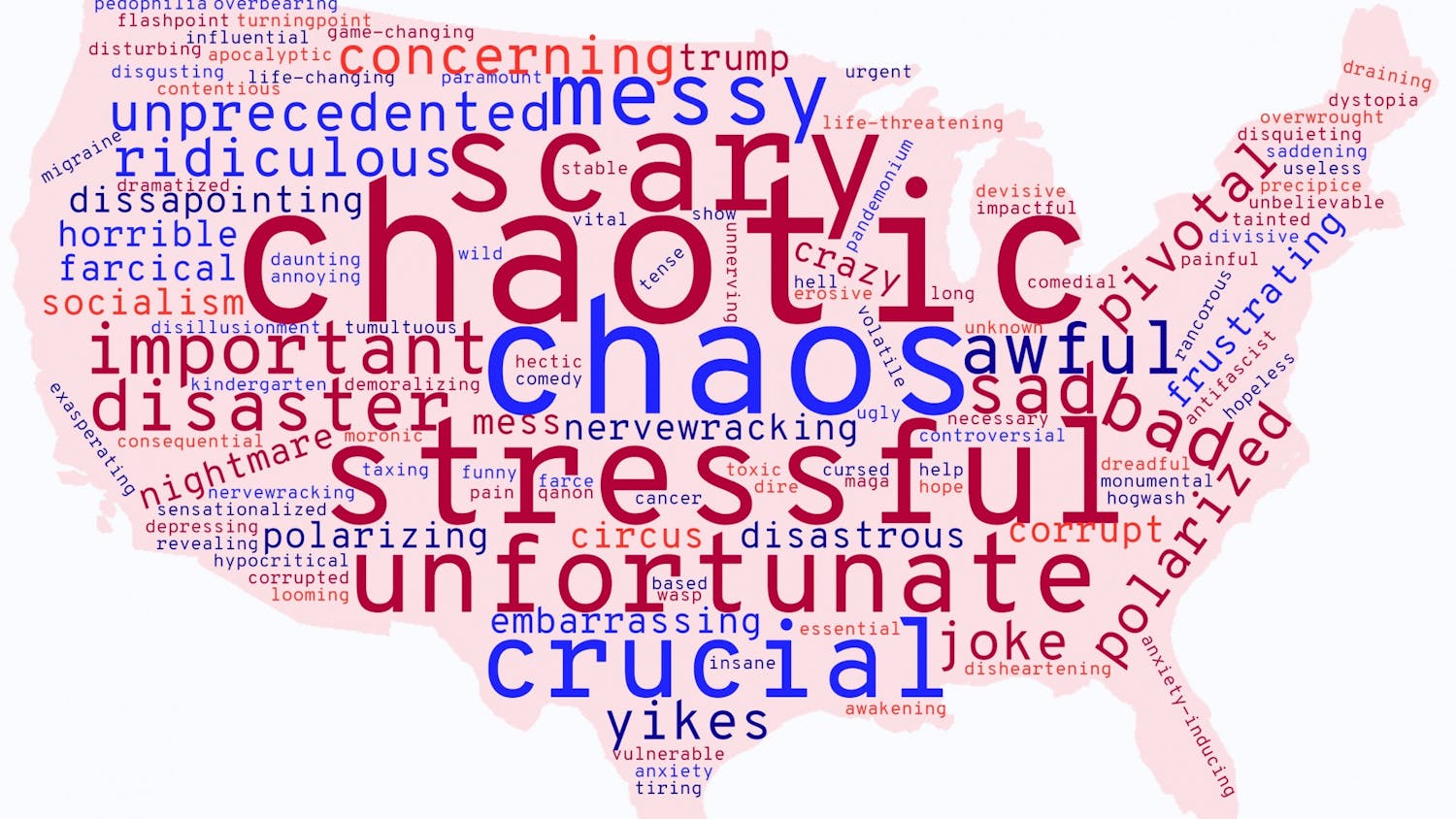After four years of twists and turns in the White House, President Donald Trump will be replaced in January by a far more traditional administration. According to Dartmouth government, economics and public policy professors, former Vice President Joe Biden’s victory bodes well for the durability of American institutions, but the president-elect may face serious governance challenges with a divided government.
“So far, it’s been a very good week for ‘little-d’ democratic institutions, after a rough couple of years,” public policy professor Charles Wheelan '88 said. “We managed to pull off an election, with record turnout, during a pandemic, and that is not a trivial accomplishment.”
He said that the election went smoothly, broadly speaking, as there were no widespread incidents of election-related violence, disruption at polling places or issues with mail-in ballots.
However, multiple professors cautioned that while the presidential election may have been called by news networks, Trump has yet to concede and has already begun spinning up legal challenges and spreading misinformation about the election’s result. Over the past few days, dozens of his tweets about the election have been labeled as inaccurate by Twitter, his campaign filed several lawsuits in swing states and he levied several baseless accusations of election fraud.
“We’re not out of the woods here,” Wheelan said. “We really don’t know how Donald Trump is going to behave. If his past behavior is any indication, it could possibly be unprecedented, probably not in a good way.”
Wheelan added, though, that he was skeptical the legal challenges would be successful and that he expects the transition of power will take place smoothly. Government professor Herschel Nachlis expressed similar feelings, though he noted that he has “gotten out of the business of trying to predict what precisely Donald Trump will do.”
Government professor Dean Lacy said he will be watching to see if some of Trump’s lawyers abandon the legal efforts or if they remain on his team, as well as whether or not congressional Republicans continue to support the president’s efforts to question the results of the election.
Lacy added that the results of the election were consistent with the political science theory of retrospective voting, which states that voters judge incumbent candidates based on recent performance rather than expectations of how candidates might perform in the future. He noted that Trump faced a significant economic downturn during his administration, just as recent one-term presidents Jimmy Carter and George H.W. Bush did.
“I do think this was a referendum on Trump’s handling of the economy, and also probably of COVID,” Lacy said. He noted that positive economic news in the third quarter of this year — the economy recovered roughly two-thirds of the output lost in the pandemic-related downturn in the first half of the year, and the unemployment rate continued to fall in October — may have made the election closer than it otherwise would have been.
Economics professor Bruce Sacerdote said that voters tend to care about their current financial situation, and the COVID-19 recession was a “gut punch” for those who earn the least because they are disproportionately employed in jobs that could not go remote.
Additionally, the 2020 election is projected to have the highest rate of voter turnout in over a century. Nachlis praised several factors that increased democratic participation, including increased grassroots mobilization efforts in states like Georgia and new laws that expanded mail-in voting and implemented automatic voter registration. The question, he indicated, is how permanent those changes will be post-pandemic.
“Optimistically, and I think plausibly, we’ve seen these huge increases in making voting easier, in some large measure due to the pandemic,” Nachlis said, adding that he thinks the effects may be lasting. “It would be hard to imagine giving people something that makes their lives easier, that increases democratic participation and increases turnout, then folks turning around and saying, ‘Well, no, we’re going to take that away from you.’”
Lacy said that he believes the election outcome represents a rejection of Trump, if not the GOP at large. This is notable, he said, because other actors in the political system have been unable to check Trump’s “antidemocratic” tendencies — like support for voter suppression efforts — leaving it to voters to do so at the ballot box.
“It’s that mechanism of having presidents and politicians stand before voters that gives voters the chance to be this rational god of vengeance and reward,” Lacy said, “and constrain elected leaders in ways that they can’t appear to constrain each other.”
However, despite the rejection of Trump and the GOP in the highest office, voters may have elected a divided federal government. Though Biden won the presidency, Republicans look likely to pick up seats in the House of Representatives and maintain control of the Senate; the latter is contingent on the results of two January runoff races in Georgia.
“There’s no sweeping mandate from the people that Biden is supposed to do something other than fill the office that Trump is leaving,” Wheelan said.
Lacy said that a divided government represents a “best-case scenario” for traditional — rather than Trumpian — Republicans, who can attempt to “exorcise Trump from Republicanism.” He noted, however, that there is a wing of the party that will likely remain loyal to Trump and his style of politics even after he leaves the Oval Office.
Nachlis posited, on the other hand, that the GOP holding the Senate may be a “blessing in disguise” for Biden because it gives him a scapegoat when more progressive Democrats become frustrated that their ideas are not being passed.
“As an electoral matter, that sort of forced moderation might help the Democratic Party,” he said.
Sacerdote said that a top priority for Biden and Congress should be another stimulus bill to help boost the economy until COVID-19 is controlled.
“Almost all economists agree that when faced with a crisis of this magnitude — a potential collapse in demand — engaging in fiscal stimulus is a wise thing to do,” he said, adding that a stimulus package “particularly makes sense in an environment with ridiculously low interest rates and no inflation.”
Lacy, Nachlis and Wheelan all said that whether other policy measures can get passed will depend on whether Senate Majority Leader Mitch McConnell, R-Ky., and other Senate Republicans choose to work with the Biden administration or not.
Lacy said he can even “imagine a scenario where Biden can’t get his cabinet nominees selected.”
“Under very narrowly divided government, with someone who was in the Senate for decades, can we still achieve compromise?” Nachlis asked. “I’d like to believe the answer to that question is yes, and if the answer is no, then I think that provides further evidence for a set of worries that a lot of people have about whether we’re still capable of competent, pragmatic, functional government.”
Biden could still achieve some of his policy goals via executive action, such as creating a plan to help bring COVID-19 under control, rejoining the Paris Agreement and reversing Trump’s downsizing of national monuments. Still, any major new policies are likely to require congressional approval, meaning compromise between both parties.
Sacerdote said he believes the country is ready for a move toward more bipartisanship, predicting that “if anyone can restore some of the cooperation, it will be Biden,” given his history of working across the aisle in the Senate.
“People … have been hoping for a move towards more bipartisanship and less polarization and asking what forces can get us there,” Sacerdote said. “Maybe we’ve finally gotten to that point where it got so bad that people are asking for something else.”





